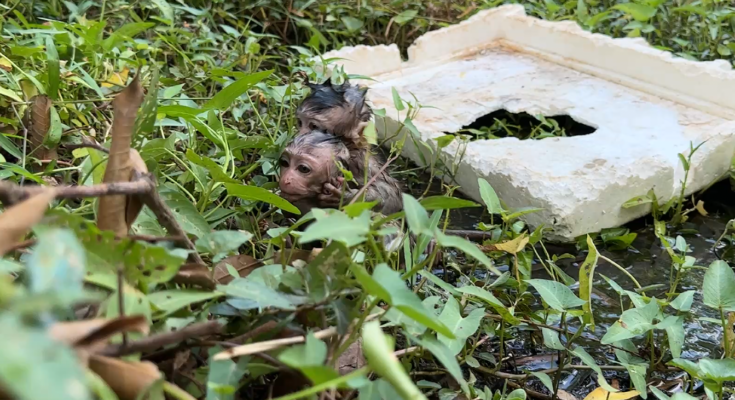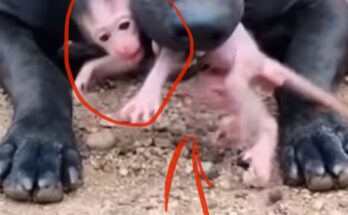As nature lovers, we often come across fascinating wildlife, and one of the most heartwarming sights is seeing a baby monkey in its natural habitat. These playful and curious creatures are often found in forests, jungles, and occasionally near lakes or rivers. However, lakes, despite their beauty, can be dangerous to little baby monkeys due to the risk of drowning or encountering predators. If you find yourself in a situation where you need to keep a baby monkey away from a lake, here are some essential tips to ensure its safety and well-being.
1. Assess the Environment:
Before taking any action, observe the surroundings closely. Check if there are any potential threats nearby, such as predators or even aggressive adult monkeys that might inadvertently harm the baby. Ensure the baby monkey is not too close to the water’s edge, where it might accidentally fall in.
2. Gently Guide the Baby Monkey Away:
If the baby monkey is close to the lake, gently and calmly approach it. Avoid sudden movements or loud noises that might frighten it. Slowly guide the little one away from the water, using soft, reassuring gestures. Monkeys, especially babies, are intelligent and may follow your movements if you approach them calmly.
3. Block Access to the Lake:
If you’re in an area where baby monkeys are frequently near the lake, try to create a safe zone. Place barriers or natural objects like branches or logs that can act as gentle deterrents. This will help keep the baby monkey away from the dangerous area without causing stress.
4. Monitor and Report:
After ensuring the baby monkey is safe, keep an eye on it to make sure it doesn’t return to the lake. If you are in a protected wildlife area, report the encounter to local authorities or wildlife experts, who may be able to ensure the safety of the animal and its habitat.
In conclusion, protecting wildlife, especially delicate creatures like baby monkeys, is crucial. By understanding their behavior and acting carefully, we can help keep them safe from harm while preserving the beauty of their natural habitats.



